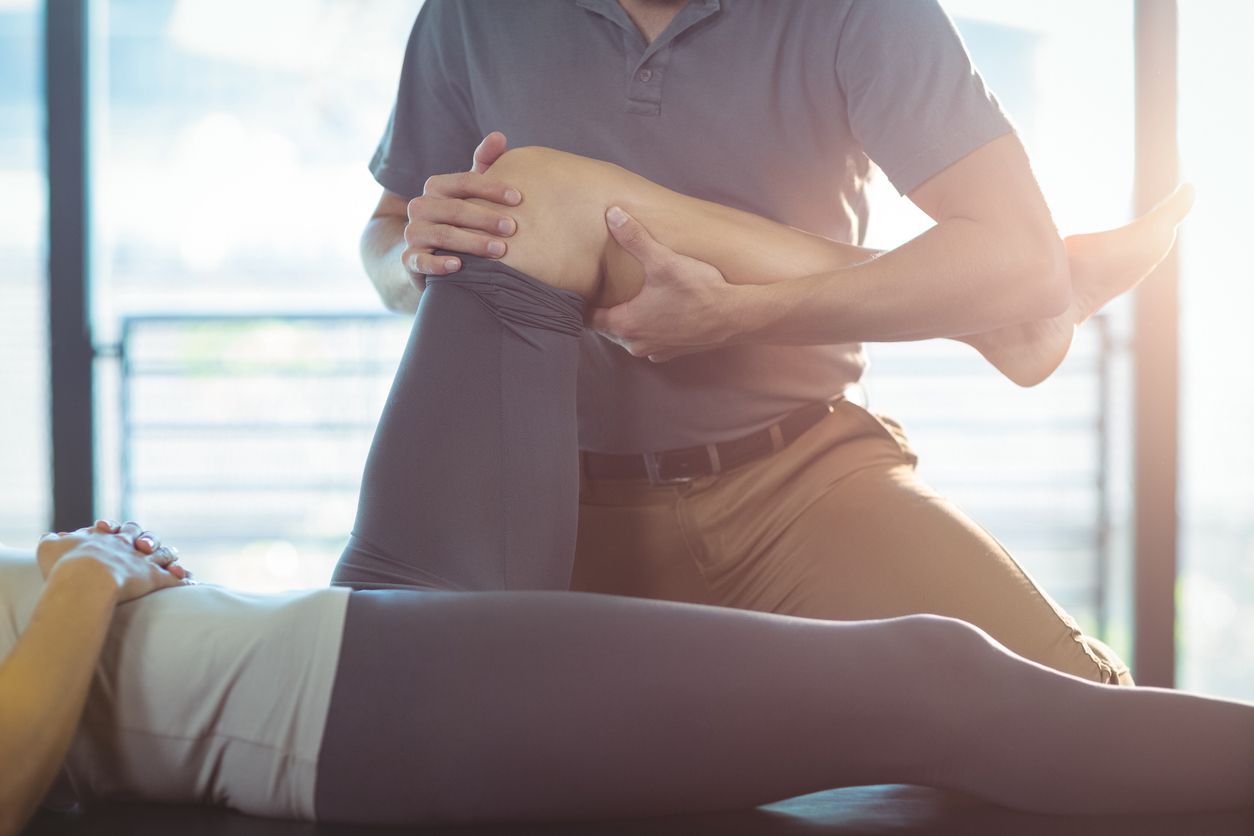Muscle Twitching


What Causes Muscle Twitching?
Muscle twitching is more common than you may think and it’s usually not serious. Common causes range from too much caffeine and too much stress to strenuous exercise and a lack of sleep. Managing stress and limiting caffeine, for example, may be enough to stop the twitching.
Benign Causes
Benign twitches are not caused by a disease or disorder. They’ll often affect the eyelids, calf, or thumb and usually won’t last more than a few days.
Common triggers for benign twitches include:
- Certain medications, such as water pills or steroid medicines
- Exposure to extreme cold
- Hyperventilation
- Strenuous exercise
- Stress or anxiety
- Tiredness or lack of sleep
- Too much caffeine or alcohol
More Serious Conditions
Lower motor neurons transmit nerve signals from your spinal cord to your muscles. When these nerve signals are disrupted, muscle weakening and wasting will eventually occur, along with uncontrollable muscle twitching called fasciculations.
Fasciculations are a hallmark symptom of diseases that affect the lower motor neurons, like ALS.
Is Muscle Twitching a Sign of ALS?
Muscle twitching is a common symptom of ALS. The twitching is not painful, but it can interfere with sleep.
Fasciculations caused by ALS will be accompanied by other early symptoms:
- Weak or soft muscles
- Muscle cramping
- Symptoms affecting only one body region, or mild symptoms affecting more than one region
- Fatigue
- Poor balance
- Slurred words
- Weak grip
- Tripping when walking
- Tongue twitching
Diagnosis
To determine the underlying cause of your muscle twitching, your healthcare provider will likely do a physical examination and ask you questions such as:
- When your muscles began twitching
- Where the twitches occur
- How often the twitches occur
- How long the twitches last
- If you’re having any other symptoms
If the healthcare provider suspects your muscle twitching may be due to an underlying condition, they may order blood tests, a magnetic resonance imaging (MRI) scan, a computed tomography (CT) scan, or electromyogram to assess the health of your muscles and the nerve cells that control them.
How Can I Stop Muscle Twitching?
Treating the underlying cause of muscle twitches is the primary concern, and it may stop the twitching. What that entails, of course, depends on what condition is at the root of the symptom.
Generally, speaking, medications that may be used to specifically address spasticity and clonus include:
- Muscle relaxants
- Benzodiazepines
Preventing Muscle Twitching
If you have recurrent episodes of muscle twitching unrelated to an illness or a disease, it’s important to pay attention to stimuli or situations that seem to trigger the episodes. Taking steps to avoid mental or physical stress can lower your risk of experiencing twitching.
Specific steps you can take include:
- Managing stress and anxiety
- Getting regular exercise
- Getting enough sleep
- Avoiding caffeine and alcohol
Conclusion
Muscle twitching can have a number of different causes. Common causes are often benign, meaning the twitching is not due to an underlying disease or abnormality. In rare cases, muscle twitching can be a sign of a more serious medical condition, like ALS or MS.
By itself, muscle twitching need not be a cause for alarm. It may go away after a short while or with lifestyle modifications. If muscle twitches don’t disappear on their own or are accompanied by muscle weakness, pain, or other abnormal symptoms, contact a healthcare provider. Your provider can help nail down the cause of muscle twitching and get you the treatment you need.
FAQs
Q: What are the common causes of muscle twitching?
A: Common causes of muscle twitching include too much caffeine and too much stress, strenuous exercise, a lack of sleep, and certain medications.
Q: Is muscle twitching a sign of ALS?
A: Muscle twitching is a common symptom of ALS, but it’s not the only symptom. Other early symptoms of ALS include muscle weakness, muscle cramping, and fatigue.
Q: How can I stop muscle twitching?
A: Treating the underlying cause of muscle twitches is the primary concern, and it may stop the twitching. Your healthcare provider may recommend medications or lifestyle modifications to help manage the twitching.
Q: Can I prevent muscle twitching?
A: Yes, you can take steps to prevent muscle twitching by managing stress and anxiety, getting regular exercise, getting enough sleep, and avoiding caffeine and alcohol.
Recent Posts
The Privilege of Pressure
Here is the rewritten article: After Overcoming Injuries and Other Obstacles, Bethany Flores is Ready…
Do any non-drug treatments help back pain?
Is back pain likely to be serious? There are different types of low back pain.…
2025 Sampson Showdown Pro Wellness Show
2025 Sampson Showdown Pro Roster The 2025 Sampson Showdown Pro is scheduled for Saturday, March…
7 Common Causes of Pulmonary Arterial Hypertension
Pulmonary Arterial Hypertension (PAH): Causes and Types 1. Idiopathic PAH About half of PAH cases…
Losing your job is bad for your health, but there are things you can do to minimize the harm
Pathway to Illness When people lose their jobs, they do have real problems. Typically, for…
Coffee enemas probably won’t detox your system
What do King Charles and Gwyneth Paltrow have in common? They've both at one point…


